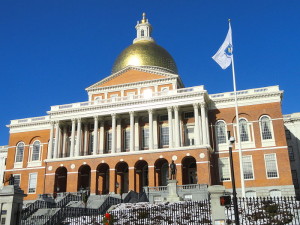Meet the new millionaire tax: It’s the same as the old millionaire tax that was rejected on constitutional grounds by the Supreme Judicial Court – keeping it off the 2018 ballot – with one key difference.
By using a different legislative procedure this time around, supporters of the measure that would raise money for education and transportation through a surtax on Massachusetts’ wealthiest taxpayers are confident they can skirt the state high court’s objections and place the measure before voters.
Dubbed the Fair Share Amendment by its backers, though often referred to as the “millionaire tax,” the proposal required a change in the state constitution. That’s because of the current stipulation that income taxes be levied at a “uniform” or flat rate – unlike the graduated income tax on the federal level.
The amendment seeks to add a 4 percent tax on the portion of an individual’s annual income that exceeds $1 million.
The high court, deciding a lawsuit brought by several business-backed groups, ruled last May that the proposal violated the “relatedness” clause in Article 48 of the constitution, which established the rules for citizen-initiated ballot questions. Disappointed backers of the surtax blamed a “few wealthy corporations and their lobbyists” for blocking the amendment and the potential $2 billion in new revenue it would generate.
As a legislative amendment, as opposed to an initiative petition, supporters are confident that even with identical wording the new proposal would not be subject to the relatedness clause or other legal restrictions on ballot initiatives.
That assessment is not disputed by opponents of the millionaire tax.
“It’s a different process and I think they’re right,” said Eileen McAnnenny, president of Massachusetts Taxpayers Foundation. “Because this is not a citizen’s petition the prohibitions don’t apply.”
Critics will instead argue against the measure on policy grounds. Fluctuations in the income of the state’s wealthiest taxpayers resulting from dividends, capital gains and other factors would make the tax an unstable revenue source for the state, McAnnenny said.
Other opponents have said the tax could steer entrepreneurs and their businesses away from Massachusetts.
The new proposal has been referred to the Legislature’s Revenue Committee for a public hearing.
Approval by a majority of lawmakers would be needed in two successive Legislatures, in contrast to the earlier initiative petition procedure in which the support of only 25 percent of lawmakers was required to advance the measure to the ballot.
The higher bar wouldn’t appear to be a problem. A joint constitutional convention of the House and Senate solidly backed the millionaire tax 134-55 in 2017, similar to the margin in a 2015 vote.
Because of the setback in the courts, the earliest it can now reach the state ballot is 2022.
Many Democrats, including some legislative leaders, say the state can’t wait that long to address inequities in education or deteriorating transportation infrastructure. That could result in a discussion on Beacon Hill of alternative revenue-raising measures long before voters finally get to decide the millionaire tax.






